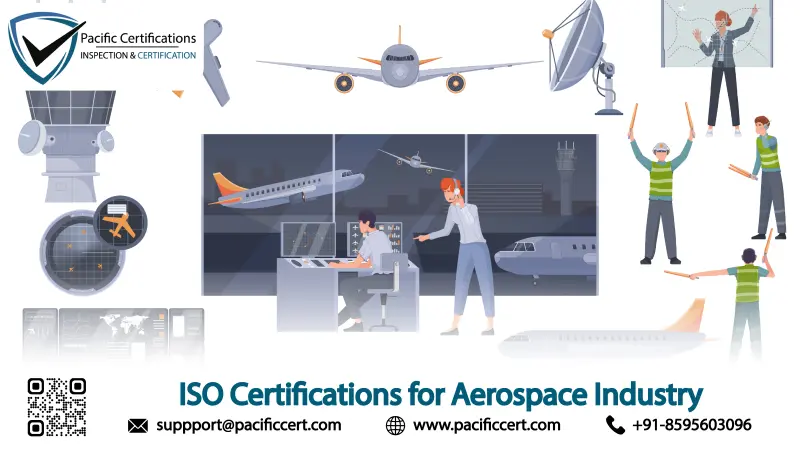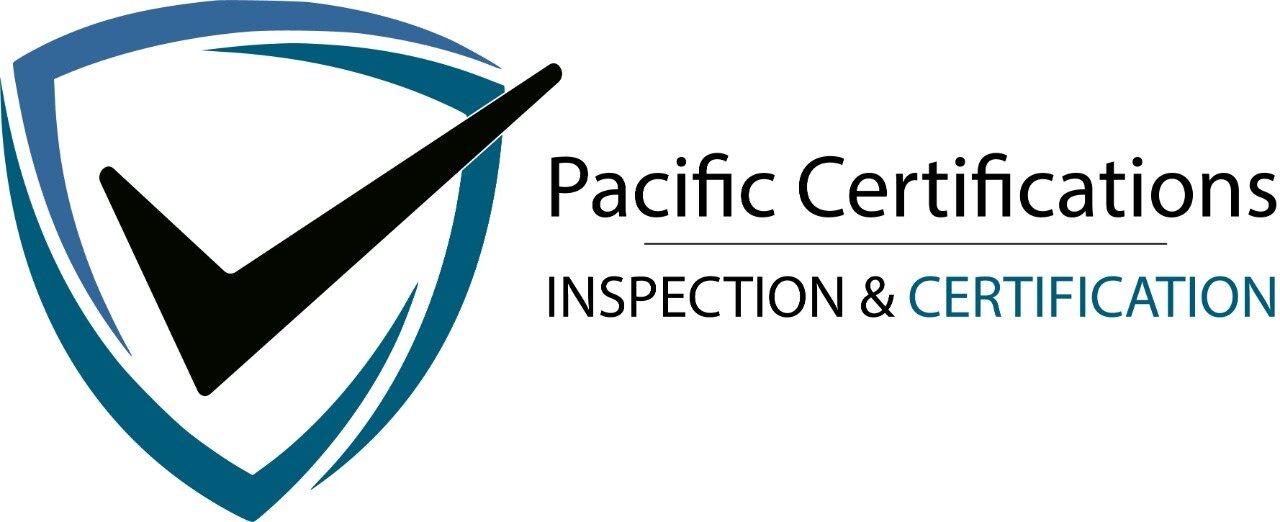ISO Certifications for Aerospace Industry, Requirements and Benefits

ISO Certifications for Aerospace Industry
The Aerospace Industry is one of the most regulated and technologically complex sectors in the world, covering aircraft design, manufacturing, maintenance, supply chains, and space technologies. With safety, quality, and reliability as top priorities, compliance with international standards is essential.
ISO certifications provide aerospace companies with the framework to ensure excellence and demonstrate compliance to regulators, clients, and stakeholders. From aircraft manufacturers to component suppliers and maintenance providers, ISO certifications are critical for achieving global recognition and competitiveness.
In aerospace, precision, safety, and compliance are the foundation of trust and innovation
Applicable ISO Standards for the Aerospace Industry
Below are the key applicable ISO Standards to the Aerospace Industry:
ISO 9001: Quality Management Systems (QMS)
ISO 9001 provides the foundational framework for controlling aerospace processes such as design management, production planning, inspection, testing, calibration, document control, supplier qualification, and corrective actions. It supports consistency, traceability, and continuous improvement across aerospace operations.
AS/EN 9100 – Aerospace Quality Management Systems
AS/EN 9100 builds on ISO 9001 with aerospace-specific requirements such as configuration management, product safety, risk-based thinking, counterfeit part prevention, supplier control, and traceability. It is widely required by aircraft OEMs, defense organizations, and Tier-1 suppliers.
ISO 45001: Occupational Health and Safety Management Systems
Aerospace manufacturing and MRO environments involve hazards such as heavy machinery, composite materials, chemicals, high-voltage systems, confined spaces, and working at heights. ISO 45001 helps organizations systematically identify hazards, implement controls, and protect personnel.
ISO 14001: Environmental Management System (EMS)
Aerospace operations generate environmental impacts including emissions, hazardous waste, chemicals, noise, and energy consumption. ISO 14001 supports regulatory compliance, pollution prevention, and improved environmental performance across facilities
ISO 50001: Energy Management Systems
Energy-intensive activities such as machining, heat treatment, testing, cleanrooms, and hangar operations benefit from ISO 50001 by improving energy efficiency, reducing costs, and supporting sustainability goals.
ISO 22301:2019 – Business Continuity Management Systems
Disruptions such as supply chain failures, equipment breakdowns, cyber incidents, or geopolitical events can affect critical aerospace programs. ISO 22301 ensures preparedness and recovery planning to maintain operational continuity.
ISO 27001: Information Security Management Systems (ISMS)
Aerospace organizations manage highly sensitive data including aircraft designs, avionics software, defense information, test results, and customer contracts. ISO/IEC 27001 protects confidentiality, integrity, and availability of critical information assets.
ISO 31000:2018 - Risk Management
ISO 31000 supports enterprise-wide risk identification and management related to safety, certification, technical failures, regulatory compliance, supplier dependency, and reputational exposure.
Click here to find out more applicable standards to your industry
What are the Requirements of ISO Certifications for Aerospace Industry?
Aerospace organizations seeking ISO certification must establish documented management systems and demonstrate consistent implementation across engineering, production, safety, environmental, and governance functions.
ISO 9001 / AS 9100 – Quality Management Requirements
Document design, manufacturing, inspection, and testing processes
Control configuration, revisions, and technical documentation
Ensure supplier qualification and traceability of parts
Manage nonconformities, corrective actions, and root cause analysis
Maintain calibration and inspection records
Conduct internal audits and management reviews
ISO 45001:2018 – Occupational Health & Safety Requirements
Identify hazards related to machinery, chemicals, composites, and testing
Assess OH&S risks and implement engineering controls
Provide training, PPE, permits, and emergency preparedness
Monitor incidents, near-misses, and safety performance
ISO 14001:2015 – Environmental Management Requirements
Identify environmental aspects of aerospace operations
Control hazardous materials, waste, and emissions
Ensure compliance with environmental regulations
Monitor environmental performance and improvement initiatives
ISO/IEC 27001:2022 – Information Security Requirements
Identify and classify sensitive aerospace and defense data
Conduct information security risk assessments
Implement access control, encryption, and monitoring
Establish incident response and recovery procedures
ISO 22301:2019 – Business Continuity Requirements
Identify mission-critical aerospace processes
Conduct business impact analysis (BIA)
Develop continuity and recovery plans
Test and review continuity arrangements
Tip: Map one complete aerospace product lifecycle—from design and supplier sourcing to manufacturing, inspection, delivery, and in-service support—against ISO requirements to identify quality, safety, and compliance gaps early.
For assistance in evaluating your aerospace operations against ISO requirements, contact [email protected].
What are the Benefits of ISO Certifications for Aerospace Industry?
ISO certifications provide aerospace organizations with significant operational and commercial advantages, including:
Improved product safety and airworthiness confidence
Stronger compliance with aviation and defense regulations
Reduced risk of defects, rework, and certification delays
Enhanced supplier and subcontractor control
Safer working environments for specialized personnel
Better protection of sensitive aerospace data
Improved audit and regulatory inspection readiness
Increased eligibility for OEM, defense, and space contracts
Stronger credibility in global aerospace supply chains
Long-term resilience and sustainable business growth
How Pacific Certifications Can Help?
Pacific Certifications, accredited by ABIS, acts as an independent certification body for aerospace industry organizations by conducting impartial audits against applicable ISO and aerospace standards. Our role is to objectively assess whether documented management systems and aerospace operations conform to international requirements, based strictly on verifiable evidence and records.
We support aerospace organizations through:
Independent certification audits conducted in accordance with ISO/IEC 17021
Objective assessment of quality, safety, environmental, continuity, and data-security controls
Clear audit reporting reflecting conformity status and certification decisions
Internationally recognized ISO and aerospace certifications upon successful compliance
Surveillance and recertification audits to maintain certification validity
Contact Us
For ISO certification for aerospace industry organizations, contact [email protected]or call +91-8595603096.
Author: Sony
Read more: Pacific Blogs

